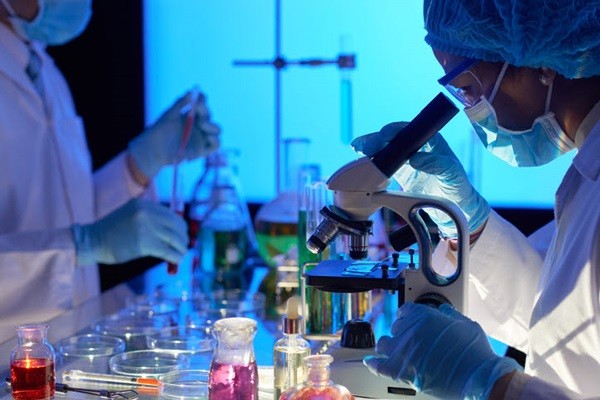Korea Institute of Science and Technology (KIST) is investigating adverse outcome pathway (AOP) of COVID-19 and its investigation is the world’s first official work to investigate AOP of COVID-19.
KIST Europe in Germany formed a research consultative group with EURL ECVAM (The European Union Reference Laboratory for alternatives to animal testing), which is under the Joint Research Centre (JRC), to investigate AOP of COVID-19 and they have undertaken on a joint research.
KIST Europe applied and registered a new AOP on how COVID-19 works in a human body through OECD (Organisation for Economic Co-operation and Development).
Afterwards, EURL ECVAM confirmed KIST Europe’s request to develop an AOP on COVID-19 and looked over whether a joint study is possible and decided to conduct a joint study with KIST EUROPE.
Not only is it possible to make a diagnosis on the virus when the AOP of COVID-19 is developed, but it is also possible to develop various treatments to reduce a toxic effect from each phase and quantify the amount of toxicity present from each phase. As a result, it will be possible to see whether a person is positive of the virus and determine which phase the virus is in. Depending on the severity of the virus, a person with the virus can receive appropriate and effective treatment.

AOP is a concept presented by OECD in order to define and evaluate potential risks and harmful effects that various chemical substances have on living organisms including human. Without an experiment on an animal, a chemical substance’s harmful effects on molecular level, cell organelles, cells, and organs can be found through various experiments. AOP determines whether results observed from a cellular level and harmful effects on organs and entities have a mutual relationship and it acts as a type of a map that connects these results and effects. The U.S. and EU consider AOP as a key concept in estimating a toxic level and are pursuing relevant studies.
KIST Europe is the first South Korean individual institute to register 3 AOPs from the ecotoxicity field on OECD’s work plan and is recognized for its fundamental technologies related to AOP development.
By developing AOPs based on big data along with other technologies such as AI, KIST Europe has been pursuing studies such as development of final validation of alternative methods based on receptor binding.
“Although the concept of AOP may be unfamiliar to the people in South Korea, it is established as a way to evaluate harmfulness of a chemical substance that replaces current animal experiments that are expensive and ineffective and its development is led by researchers from the U.S. and Europe.” said Kim Yong-joon who is the head of KIST Europe’s Environment Safety Research Group. “Fact that we have 3 AOPs selected into OECD’s work plan and received a proposal from an European research institute regarding a joint study indicate that our abilities in developing AOP are recognized globally.”
“Our short-term goal is to secure advance technologies to evaluate toxicity and prepare a groundwork to transfer relevant technologies to South Korea.” said Kim Joon-kyeong who is the manager of KIST Europe.
Staff Reporter Choi, Ho | snoop@etnews.com